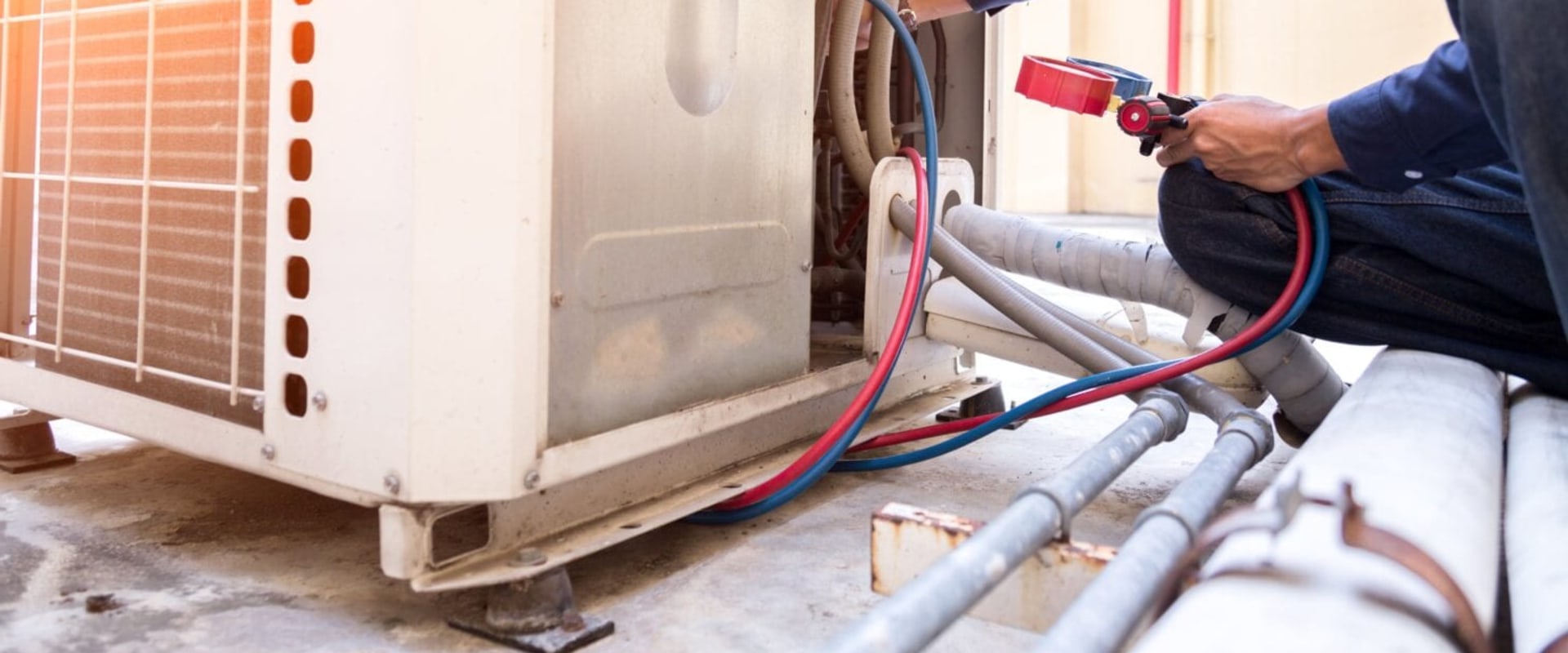Having trouble with your AC? Our air conditioner repair experts are available.
Wiki Article
How to Enhance Energy Effectiveness With Your Heating And Cooling System and Furnace Upgrades
As energy expenses continue to rise, the importance of boosting power performance through cooling and heating system and heating system upgrades can not be overemphasized. Evaluating your existing system's performance and taking into consideration energy-efficient options are important very first steps. Along with selecting designs with high SEER and AFUE ratings, enhancing thermostat settings and improving insulation can substantially affect overall effectiveness. The trip in the direction of making the most of power performance doesn't end there; recognizing the nuances of routine upkeep and its lasting advantages is just as critical. What are the certain methods that can lead to substantial financial savings and improved convenience?Evaluate Your Present System
Before starting any upgrades, it is important to assess your current HVAC system and furnace to comprehend their effectiveness and performance. This initial evaluation offers a foundation for recognizing areas that require enhancement and informs choices concerning potential upgrades. Begin by analyzing the age of your cooling and heating system, as outdated models might lack modern energy-saving attributes.
Power intake records will likewise be crucial in determining your system's operational costs. Consider carrying out a specialist energy audit to get an expert analysis of your system's efficiency.
Upgrade to Energy-Efficient Versions
Upgrading to energy-efficient designs is a critical step in enhancing the general efficiency of your a/c system and furnace. These contemporary units are made to take in less power while providing optimal heating & cooling, resulting in considerable cost savings on energy bills and a lowered ecological footprint.When taking into consideration an upgrade, try to find designs that have high Seasonal Power Performance Ratios (SEER) for air conditioning and Yearly Gas Usage Efficiency (AFUE) ratings for heating systems. These ratings indicate the performance of the devices, with higher numbers mirroring better performance. Energy-efficient models commonly incorporate innovative technologies, such as variable-speed motors and smart thermostats, which better improve energy financial savings.
Additionally, numerous energy-efficient HVAC systems are outfitted with improved insulation and better sealing, which lessen energy loss and enhance interior convenience. hvac. While the first investment may be higher, the lasting cost savings on energy costs and potential tax obligation rewards for using energy-efficient home appliances can offset this expenditure considerably

Eventually, updating to energy-efficient designs not just Discover More contributes to a more lasting future but also boosts the comfort and efficiency of your home or organization.
Optimize System Setups
To make best use of the performance of your cooling and heating system Extra resources and furnace, it is vital to maximize system setups tailored to your particular requirements. Begin by setting your thermostat to an energy-efficient temperature level. The U.S. Department of Energy advises a winter months setup of 68 ° F when you are conscious and lowering it while you rest or are away. In summer season, purpose for 78 ° F throughout the day.Utilize programmable or wise thermostats that allow you to set up temperature modifications immediately. This ensures your system operates only when required, lowering power usage. Furthermore, guarantee that your system is established to run in the right mode-- heating in winter months and cooling in summer season-- while staying clear of the continuous fan alternative unless needed for air flow.
Consider zoning systems that enable personalized comfort in various areas of your home, better enhancing performance. By fine-tuning these settings, you can accomplish substantial power financial savings while preserving a comfy living setting.
Improve Insulation and Sealing
A well-insulated home is crucial to maximizing the effectiveness of your Heating and cooling system and furnace. Correct insulation minimizes the work on these systems, consequently conserving energy and decreasing utility bills.Along with insulation, securing spaces and fractures is critical. Pay special focus to home windows, doors, and any type of infiltrations in wall surfaces, such as electric outlets and pipes fixtures. Weatherstripping and caulking can efficiently seal these openings, preventing drafts that endanger your HVAC performance.
Additionally, make sure that ducts are properly shielded and secured. Leaking ducts can lead to significant power losses, decreasing system performance. Utilizing mastic sealant or steel tape to seal duct joints can boost air flow and efficiency.
Arrange Normal Maintenance
Normal upkeep of your Heating and cooling system and heating system is necessary for guaranteeing optimum performance and durability. During maintenance, more tips here a qualified technician will certainly clean and change filters, check refrigerant levels, examine ductwork for leakages, and evaluate overall system operation.It is recommended to set up maintenance a minimum of two times a year-- when in the springtime for the air conditioning system and as soon as in the succumb to the heating unit. furnace repair. Regular maintenance assists maintain consistent interior temperatures, guaranteeing convenience throughout the year. Additionally, a properly maintained system operates much more effectively, which can result in visible decreases in power costs
Neglecting upkeep can result in reduced performance, enhanced wear and tear, and inevitably, system failure. By prioritizing normal service, homeowners can stay clear of unexpected failures and guarantee their heating and cooling system and heater operate at peak efficiency. Investing in upkeep is an essential action in boosting energy performance and producing an extra sustainable home setting.
Conclusion
Finally, enhancing power efficiency within a/c systems and furnace upgrades is necessary for decreasing power consumption and boosting overall convenience. A systematic strategy that includes examining the present system, spending in energy-efficient designs, optimizing settings, boosting insulation, and scheduling routine upkeep can lead to considerable advantages. Executing these methods not only reduces power bills however also contributes to an extra sustainable setting, making it imperative for home owners to prioritize these upgrades.Report this wiki page